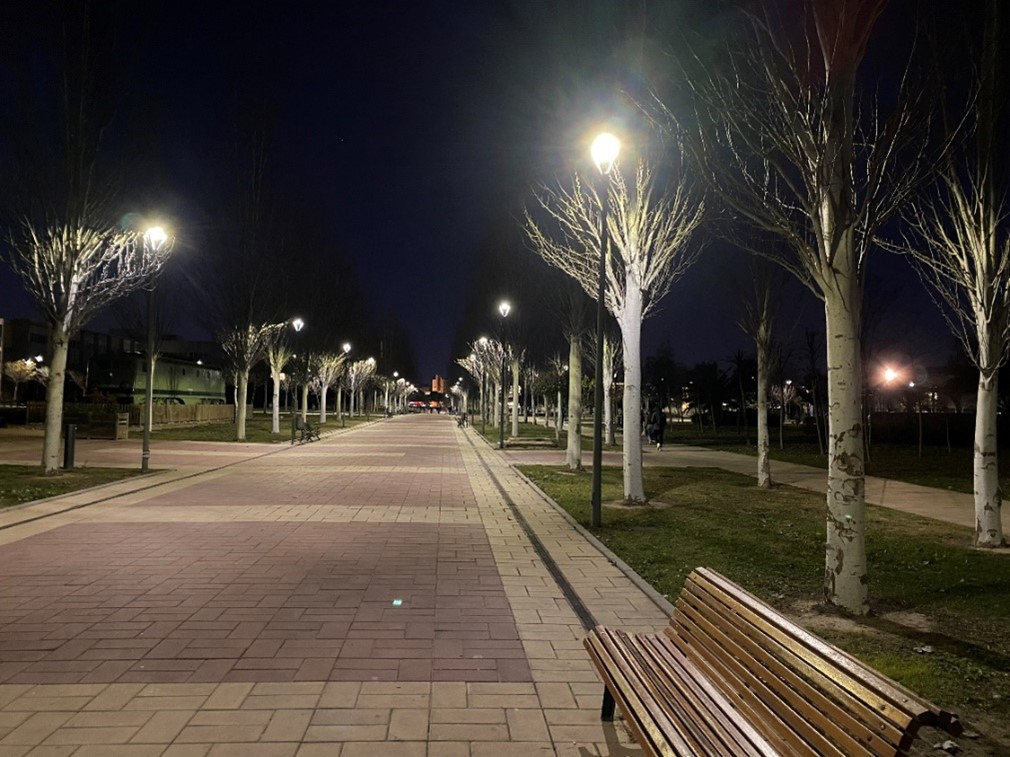Writing/Raúl García Hémonnet
The Energy Efficiency Unit (UNEFE) of the Students, Social Projection and Sustainability Area, has promoted a contract by which more than 7.500 conventional luminaires with fluorescent tubes have been replaced with LED technology. These new devices are distributed in a total of 193 classrooms with IoT control and 143 laboratories and activity classrooms with traditional control, providing a reduction in installed power of more than 60%.
Classrooms and seminars with IoT control include intelligent sensorization, which allows them to be turned on and off by detecting presence and light. This technology provides the possibility of adapting the level of lighting to the training needs, through a switch placed next to the teacher's table, from which the light intensity can be regulated and different light scenes can be selected, all managed through of a web control platform.
In addition, the lighting levels of the classrooms and laboratories are improved, increasing lighting levels in some cases by more than 30%, reaching the lighting levels required by the new regulations for the use of these spaces.
In terms of exterior lighting, all the lights on all Campuses, more than 700 units, which consumed a large amount of energy, have been replaced with LED technology. With this action, the installed power has been reduced by more than 50%. The new luminaires installed have an integrated programming that regulates the luminosity throughout the night, allowing the energy savings to be increased even further, which can reach around 70% of consumption.

These new facilities will allow the URJC university community to enjoy quality facilities, adapted to their needs and the times in which we live, and will also have a significant impact on reducing energy expenditure. The technology now installed contributes to the Rey Juan Carlos University's objective of using energy as efficiently as possible, in accordance with the objectives of sustainable development and decarbonization.



